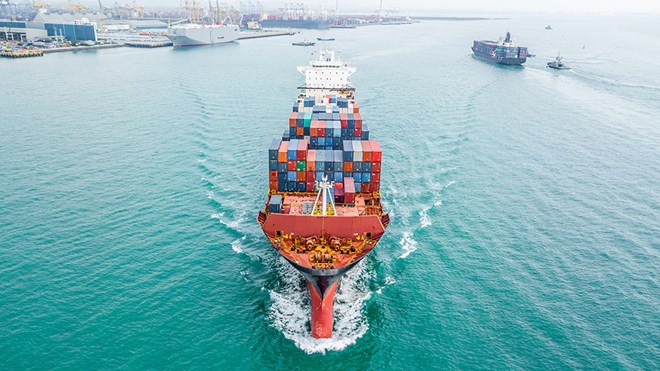
Sunday January 28, 2024

Cape Town (HOL) - The recent upsurge in maritime security incidents, including Houthi attacks in the Red Sea and a resurgence of piracy near Somalia, is causing a significant rerouting of global cargo ship traffic, with substantial implications for South African ports. Over 25,000 cargo ships travel the Red Sea annually. The detour around Africa's southern tip can extend their journey by ten days to two weeks.
In the latest incident, a Sri Lankan fishing trawler with six crew members was seized by Somali pirates in the Arabian Sea on Saturday, as reported by Sri Lanka's Department of Fisheries and Aquatic Resources.
Further compounding the situation, the coast of Yemen has witnessed a cluster of disturbing events, including a merchant vessel struck by a missile 60 nautical miles southeast of Aden and multiple attacks involving Uncrewed Aerial Systems (UAS). These incidents highlight the emerging threat of UAS in maritime disruptions, particularly in the volatile Yemeni waters.
Near Oman and Somalia, there have been alarming reports of armed boardings of merchant vessels, with one incident leading to a ship veering towards Iranian territorial waters.
US coalition forces have been actively intervening in response to these escalating threats, albeit with limited success. The persistent instability in these key shipping lanes has prompted the naval industry to call for enhanced safety measures.
The global implications of these security challenges are profound. The rerouting of cargo ships, including those avoiding the Houthi-threatened Bab-el-Mandeb Strait in favour of longer routes around Africa's southern tip, directly impacts major South African ports like Durban and Cape Town. These ports, which will see an influx in traffic, may struggle to service the influx of ships needing fuel. South African authorities recognize the potential economic opportunities for commercial vessels passing through the continent's southern tip.
This change in shipping routes not only increases travel time by up to two weeks and fuel costs by an estimated $1 million per large vessel but also poses broader economic concerns.
Ports analyst Eleanor Hadland notes that large ships can adapt to longer routes despite these challenges by strategically planning fuel stops at major stations such as Singapore, Fujairah, and Gibraltar. However, reports indicate that some ships are experiencing delays in fueling at South African ports, affecting a portion of the maritime traffic.